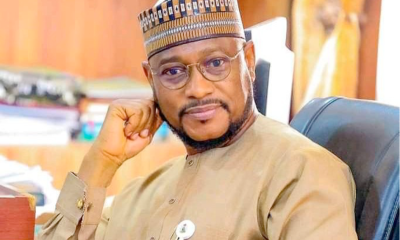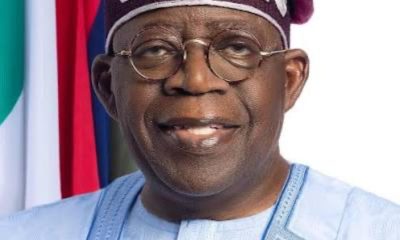Religion
Conclave Selection of Pope Francis Successor begins May 7-Vatican

To fill the vacuum created by the exit of late Pope Francis,Catholic cardinals from across the globe will meet on May 7 to start voting for a new pope, the Vatican announced Monday, a week after the death of Pope Francis.
The “Princes of the Church” under the age of 80 will meet in the Sistine Chapel to choose a new religious leader of the world’s 1.4 billion Catholics, reports AFP.
The date was decided at meeting of cardinals of all ages early today, two days after the funeral of Francis, who died on April 21 aged 88.
The Church’s 252 cardinals were called back to Rome after the Argentine’s death, although only 135 are eligible to vote in the conclave.
They hail from all corners of the globe and many of them do not know each other.
But they already had four meetings last week, known as “general congregations”, where they began to get better acquainted.
Cardinal Gualtiero Bassetti, 83, a former head of the Italian bishops’ conference, said there was a “beautiful, fraternal atmosphere.”
“Of course, there may be some difficulties because the voters have never been so numerous and
not everyone knows each other,” he told Italy’s Corriere della Sera newspaper.
The Vatican on Monday closed the Sistine Chapel, where voting will take place under Michelangelo’s 16th-century ceiling frescoes, to begin preparations.
So far there are few clues as to who cardinals might choose.
“I believe that if Francis has been the pope of surprises, this conclave will be too, as it is not at all predictable,” Spanish Cardinal Jose Cobo told El Pais in an interview published on Sunday.
Francis was laid to rest on Saturday with a funeral and burial ceremony that drew 400,000 people to St Peter’s Square and beyond, including royalty, world leaders and ordinary pilgrims.
Yesterday, about 70,000 mourners filed past his marble tomb in the Santa Maria Maggiore Basilica in Rome, after the “pope of the poor” opted to be buried outside the Vatican’s walls.
Bookmakers’ odds
With conflicts and diplomatic crises raging around the world, Italian Cardinal Pietro Parolin, who under Francis was secretary of state — the pope’s number two — is for many the favourite to succeed him.
British bookmakers William Hill put him slightly ahead of Filipino Luis Antonio Tagle, the Metropolitan Archbishop emeritus of Manila, followed by Ghana’s Cardinal Peter Turkson.
Next in their odds come Matteo Zuppi, the Archbishop of Bologna, Guinea’s Cardinal Robert Sarah, and Pierbattista Pizzaballa, the Latin Patriarch of Jerusalem.
While Francis’s efforts to create a more compassionate Church earned him widespread affection and respect, some of his reforms angered the Church’s conservative wing, particularly in the United States and Africa.
Roberto Regoli, a professor of Church history and culture at the Pontifical Gregorian University in Rome, told our correspondent that the cardinals would be looking “to find someone who knows how to forge greater unity.”
“We are in a period in which Catholicism is experiencing various polarisations, so I don’t imagine it will be a very, very quick conclave,” he said.
Bassetti, who is too old to participate, said however he thought it “will not be long.”
Some 80 percent of the cardinal electors were appointed by Francis — though that is no guarantee they will pick a successor in his likeness.
Most are relatively young, and for many it is their first conclave.
‘We need a courageous leader’
The vote is highly secretive and follows strict rules and ceremonial procedures. The process could take several days, or potentially longer.
There are four votes per day — two in the morning and two in the afternoon — until one candidate secures a two-thirds majority.
Fewer than half of those eligible to vote are European.
“The future pope must have a universal heart, love all the continents. We must not look at colour, at origin, but at what is proposed,” Cardinal Dieudonne Nzapalainga from the Central African Republic told the Italian newspaper Il Messaggero.
“We need a courageous leader, a bold one, capable of speaking forcefully, of holding the helm of the Church steady even in storms… offering stability in an era of great uncertainty.”
Patrizia Spotti, a 68-year-old Italian visiting Rome for the 2026 Jubilee holy year, told AFP Monday she hoped the new pontiff “will be a pope like Francis”.
It was a difficult time for Catholicism, she said.
“Churches are empty. And the Church itself has made mistakes, all the scandals with the children,” she said, referring to the widespread revelations of clerical sex abuse.
Religion
2026 Hajj: NAHCON pushes for improved coordination, zero complaints by pilgrims
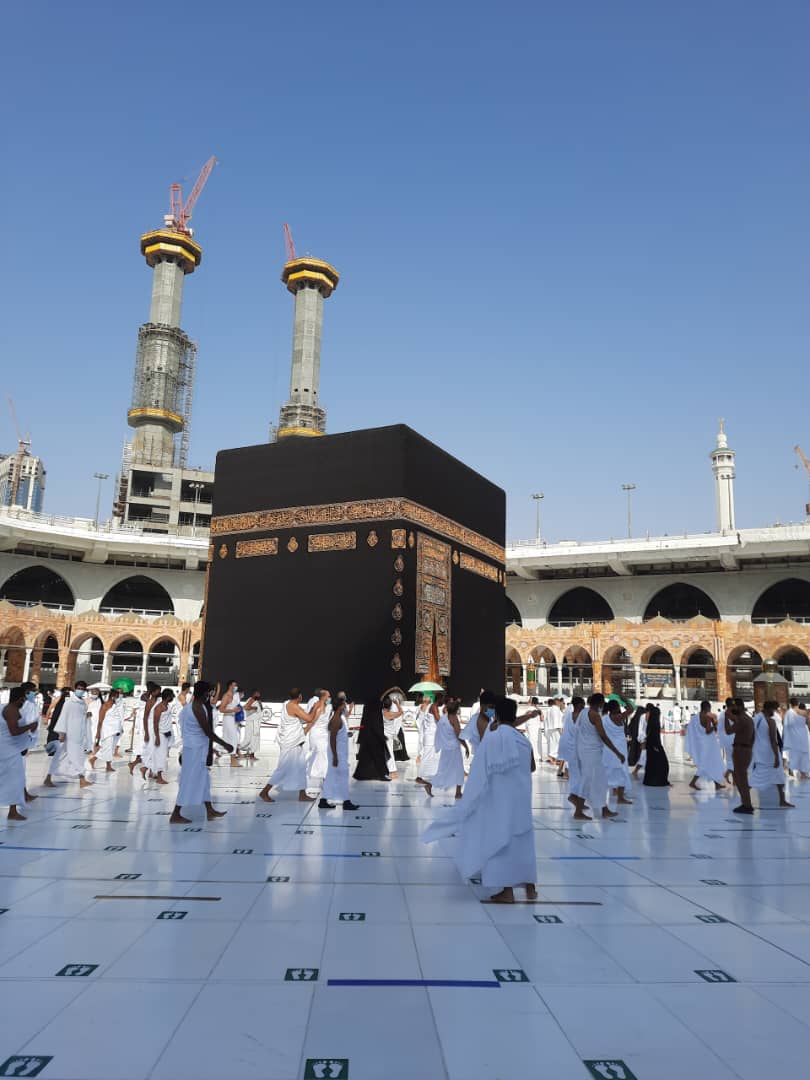
By Abdul-Ganiyy Akanbi
National Hajj Commission of Nigeria, NAHCON, has intensified its preparations for the 2026 Hajj, with renewed emphasis on coordination, interdepartmental cooperation, and enhanced service delivery.
This commitment was reinforced on Thursday during a strategic operational review meeting held at the Hajj House headquarters of the commission and attended by the Chairman, Prof. Abdullahi Saleh Usman, Commissioners, Directors, and representatives of Acosta Media.
According to a statement by the NAHCON’s Principal Information Officer, Shafii Sani Mohammed, the monthly staff training centred on Madina Operations, with the chairman stressing the need for professionalism, accountability, and teamwork across all operational units.
Usman informed that Saudi Arabia continues to introduce new policies and technological reforms, making it essential for NAHCON staff to remain updated and adaptable.
“Policies and technologies in Saudi Arabia change every year, and the expectations of Nigerian pilgrims continue to rise. We must therefore ensure we are fully prepared, better informed, and highly coordinated,” he said.
Addressing last year’s operational challenges, Usman reminded staff that the lessons learned must drive improvements in the upcoming exercise.
“We saw the areas where we fell short. This year, we must be more disciplined, united, and committed to delivering the best for our pilgrims,” he added.
The chairman also emphasized on the importance of understanding some gaps observed in last year’s operations and encouraged staff to ask questions, share knowledge, and support one another, stressing that Hajj operations evolve every year—even for officials permanently based in Saudi Arabia.
In his remarks address, the Commissioner for Policy, Research, Statistics, Information and Library Services, PRSILS, Professor Abubakar Yagawal, strongly called for a complaint-free experience for Nigerian pilgrims in the Prophet’s City.
“Please try to solve their problems, because any complaint against Madina, to my own sight, is a complaint to the Prophet. Therefore, do not allow our pilgrims to make any complaint—whether on food, accommodation, or visitations.
“If a pilgrim feels comfort in Madina, it is a very good start and he will be smiling all along. But if he starts with a problem in Madina, the consequences will be very bad,” he said.
Earlier, the Director of Administration and Human Resources, Alhaji Alidu Shutti, reaffirmed management’s commitment to strengthening staff capacity ahead of the 2026 Hajj.
Religion
We discovered over 315 students,teachers were abducted by terrorists from St Mary’s Catholic school -Bishop Yohanna
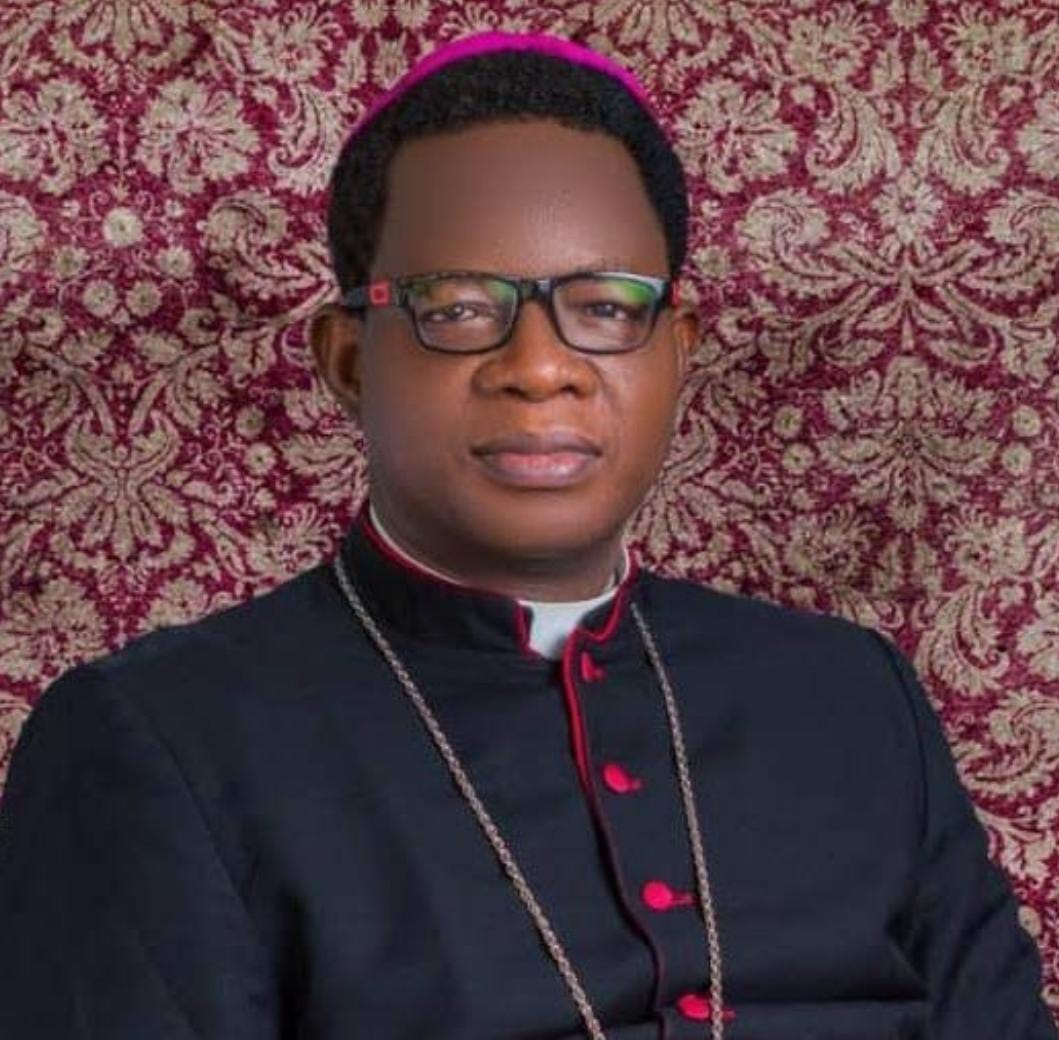
By Uthman-Baba Naseer
The total number of victims abducted by suspected terrorists from the St. Mary’s Catholic Primary and Secondary Schools, Papiri in Agwarra local government area of Niger state has now risen to 303 students and 12 teachers.
Chairman, Christian Association of Nigeria (CAN) Niger State chapter who doubles as Bishop of Kontagora Diocese,Most. Rev. Bulus Dauwa Yohanna gave the update at news briefing after a verification exercise and a final census was carried out.
Most Rev. Bulus Dauwa Yohanna said “after we left the school at Papiri, we decided to make calls, do verification exercise and do further enquiries on those we had thought escaped successfully, only to discover that 88 more students were also captured after they tried to escape.
“Our attention was drawn to when some parents whose children we had thought escaped from the attack also came asking of their children. We became curious and that was when we did census and discovered that they were abducted.
“This now makes it 303 students (male and female) including 12 teachers (4 females and 8 males) bringing the total to number of abducted persons to 315. The total of pupils and students is 629 with primary having 430 and the secondary 199 students.
“Also, it is very pertinent we address the issue of prior warnings from either the government or security agencies as peddled in some quarters.”
Continuing the CAN chairman further said,”I have just got back to the village this night after I visited the school where I also met with parents of the children to assure them that we are working with the government and Security agencies to see that our children are rescued and brought back safely but was gritted with what I term “propaganda” that the school was given a prior warning by the government through a circular.
“That is not true, we did not receive any circular, it must be an after thought and a way to shift blame. In the past, around 2022 when we heard of rumours of security challenge, we do not hesitate, we shutdown immediately. Is it when there is a circular from the government asking us to shutdown that we will now not obey?
“The school is owned by the Catholic Diocese and not by any individual. None of the Reverend Sisters travelled to Abuja as they alleged. Whoever made that misleading statement should know that it is a false allegation and should withdraw such or provide the proofs and evidences.
“We have asked the Education Secretary if he received a circular he said no; or if he was asked to send any to us, he said no. We asked if he was verbally informed, he also said no. Let them tell the world who they gave the circular to, or through what channel did they send it.
We also asked the National Association of Private Schools, they did not get any such circular. They claimed the school was shutdown and reopened few days ago, that is also not true, we are law abiding.
“I want to call on everyone to remain calm and prayerful and I also want to assure you that we will continue to actively collaborate with security operatives, community leaders, government and relevant authorities for the safe and quick return of all abductees.
“May the Lord grant quick release to those abducted and continue to protect his people from all dangers.”
Religion
Suffering, key to salvation – Fr Secundus Ogu …..God rewards a cheerful giver-Fr Chike Dim
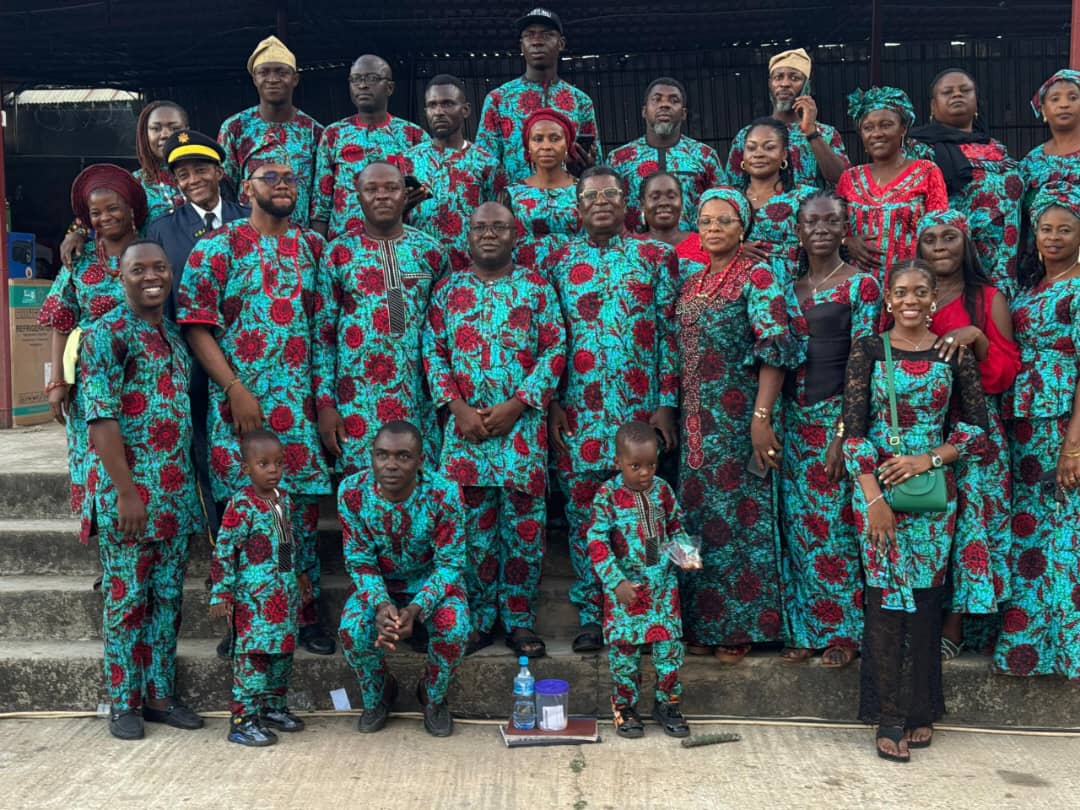
By Donald Ugwu and Ignatius Okorocha
Rev. Fr. Uche Secundus Ogu has advised Christians to embrace the virtue of suffering as a necessary condition for obtaining salvation.
Ogu, the Parish Priest of St Andrew Catholic Church, Orozo, FCT, gave the advice during his homily at the Harvest and Thanksgiving Mass of Christ the King Catholic Church (CKC) Kurudu, on Sunday.
This is even as the host Parish Priest of Christ The King (CKC) Kurudu,Very Rev. Fr. Thaddeus Chike Dim has admonished Parishioners to give generously to God in thanksgiving for all they received from his through out the year, for God rewards a cheerful giver.
Continiuing Fr Ogu noted that the notion being spread by some preachers that Christians were not meant to suffer was both unscriptural and deceitful adding that Christ endured suffering and recommended same for the salvation of mankind.
“Jesus was the first to undergo torture and persecution for faith. He was scourged and crucified by soldiers for us but he accepted the condition in order to fulfill the will of God,” he said.
The cleric noted that virtually everyone passes through trials and other excruciating difficulties which often threaten their faith in God.
He, however, explained that such conditions did not mean that God has abandoned His children.
“Suffering prepares one for eternal life. When you fall, strive to rise again from the ashes of destruction, or despair because when Christ decrees “it is finished”, Christ has taken away your shame, sorrows and weaknesses.
“Christ went through both physical and spiritual torture through which He brought comfort to sinners.”
Reflecting on the theme of the Harvest and the luturgy the priest noted that very many persons destroy their relationships with God by the way they indulge in immoral conducts.
Ogu reminded Christians to always bear in mind that their bodies are temples of God and should strive not to defy God’s temple.
“Ask God for mercy when you defile your body and do not pretend that your pleasures will not deny you a place in the heavenly kingdom on the last day.”
According to him, couples who always fight, beat up their spouses or spit causes against their spouses and children desecrate God’s temple.
The priest enjoined Christians to give necessary attention to their souls as they attend to their bodies because “inside appearance of your soul is better than polishing the outside.
“If you polish your body, also polish your soul as practical Christianity is when you give your entire life to Christ.”
On the Harvest he said it was time to thank God for helping to build the church.
“If you are a Christian and you want to grow higher you have to give to God.
“When you give, blessings come and if you do not give, blessings cease.
“Seek first the kingdom of God and everything is added unto you.”
In a remark to appreciate the worshipping community and the visiting priest, Rev. Fr. Chike Dim (OCD), the CKC parish priest reminded all that God does not abandon anyone who sows seeds
-

 Business & Economy4 months ago
Business & Economy4 months agoPC-NCG Issues Disclaimer on Purported Nigerian Coast Guard National Orientation Exercise In Anambra State
-

 Entertainment1 year ago
Entertainment1 year agoJubilation galore as Parishioners of CKC Kurudu celebrate their cultural heritage ….FG should exploit our Cultural heritage to unite Nigerians-Rev Fr Dim
-

 Law & Crime6 months ago
Law & Crime6 months agoICPC pledges to collaborate with FIDA to end Sex for Marks in tertiary institutions
-

 General News1 year ago
General News1 year agoCelebration galore as UDA Successfully Elected New Exco ……I will digitalize processes that will raise UDA to greater height -Comr. Okejiri
-

 General News2 years ago
General News2 years agoReps hold public hearing on FMC Ugwuaji Awkunanaw
-

 Law & Crime5 months ago
Law & Crime5 months agoLegal practitioner raises alarm over threat to his life by CSP Muhammed Abdulkareem
-

 General News1 year ago
General News1 year agoKugbo Hill Tragedy: Trailer Crushes Car, Kills Four and Injures Several Others in Abuja
-

 Politics3 months ago
Politics3 months agoASUU-NDU protest against FG loans, unpaid salaries,Non-Implementation of agreements …..says loans is generational slavery







